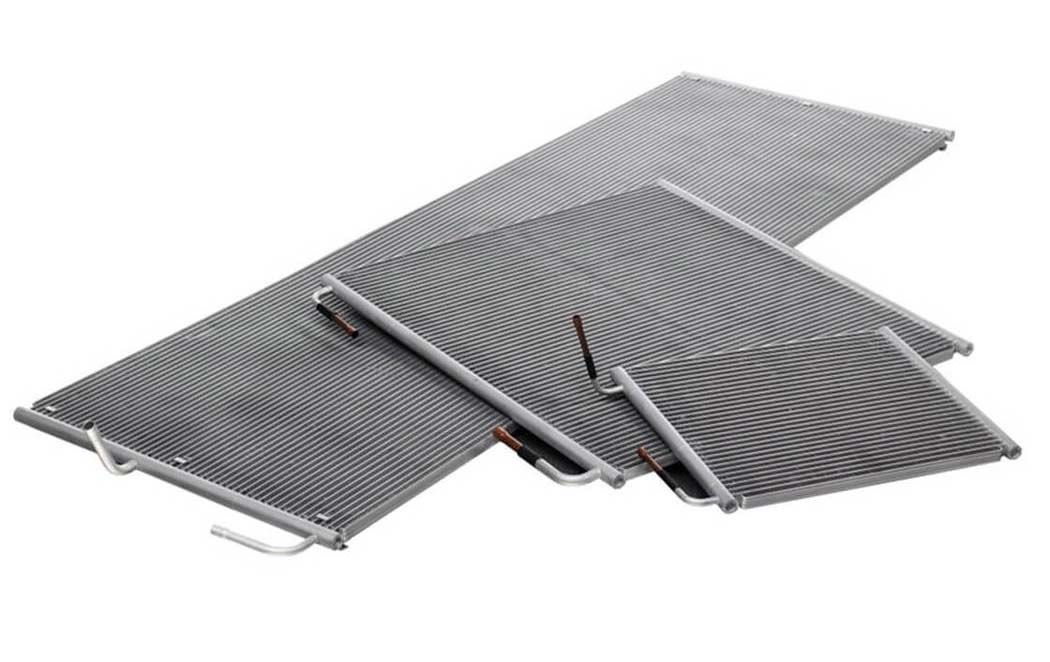- All
- Product Name
- Product Keyword
- Product Model
- Product Summary
- Product Description
- Multi Field Search
Views: 0 Author: Site Editor Publish Time: 2024-04-11 Origin: Site







In the ever-evolving world of air conditioning technology, one innovation stands out for its efficiency and compact design - the microchannel heat exchanger. Traditional heat exchangers have been a cornerstone of air conditioning systems for decades, but the microchannel variant takes cooling to a whole new level. In this blog post, we will delve into the intricacies of microchannel heat exchangers and explore how they are revolutionizing the air conditioning industry.
Understanding Microchannel Heat Exchangers:
A microchannel heat exchanger is a compact and high-performance device designed to enhance the heat transfer process in air conditioning systems. Unlike traditional fin-and-tube heat exchangers, microchannel heat exchangers feature multiple small channels that allow for better thermal efficiency and improved heat transfer rates. These channels, typically less than 1 mm in size, increase the surface area available for heat exchange, resulting in a more effective cooling process.

Benefits of Microchannel Heat Exchangers:
1. Enhanced Heat Transfer Efficiency:
Microchannel heat exchangers maximize the contact between the refrigerant and the air, promoting efficient heat exchange. The small channels facilitate a higher heat transfer rate, leading to improved overall system performance.
2. Reduced Refrigerant Charge:
Due to their compact design, microchannel heat exchangers require less refrigerant compared to traditional systems. This not only contributes to lower environmental impact but also makes the system more cost-effective.
3. Compact Design:
Microchannel heat exchangers are known for their space-saving design. Their compact size allows for more flexible installation options and is particularly beneficial in applications with limited space, such as automotive air conditioning systems.
4. Improved Durability:
The robust construction of microchannel heat exchangers, often made from materials like aluminum, enhances durability and resistance to corrosion. This longevity contributes to the overall reliability of the air conditioning system.
5. Energy Efficiency:
The enhanced heat transfer capabilities of microchannel heat exchangers result in improved energy efficiency. Air conditioning systems equipped with microchannel technology can achieve desired cooling levels with reduced energy consumption, translating to cost savings for users.
Applications in Air Conditioning:

Microchannel heat exchangers find applications in various air conditioning systems, ranging from residential cooling units to large-scale commercial HVAC systems. Their versatility, combined with the benefits mentioned above, makes them a preferred choice for manufacturers aiming to create energy-efficient and environmentally friendly air conditioning solutions.
Conclusion:
As the demand for energy-efficient and sustainable air conditioning solutions continues to grow, microchannel heat exchangers have emerged as a key player in the industry. Their compact design, enhanced heat transfer efficiency, and overall performance improvements make them a valuable asset for those looking to stay ahead in the rapidly advancing world of air conditioning technology. By understanding and harnessing the power of microchannel heat exchangers, the air conditioning industry can pave the way for a cooler, more efficient, and environmentally friendly future.